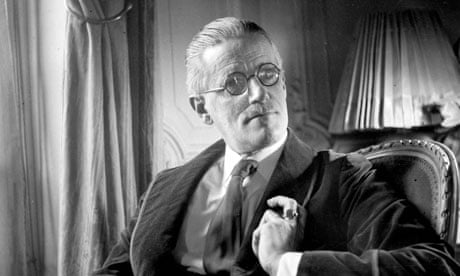Language and literature are like the tortoise and the hare. The progress of language, for example the transition from Anglo-Saxon to Middle English, is infinitely slow. The literary hare, meanwhile, leaps forward in jaunty spurts with the publication of a landmark novel or poem, say Joyce's Ulysses, or T S Eliot's The Waste Land.
I have been tracking the complex interaction between English language and literature through the latest online edition of the Oxford English Dictionary (OED), launched last week. It's a wonderful way to pass a slow afternoon. Type in Austen and you discover that the author of Pride and Prejudice has fewer citations than Mark Twain or George Eliot. "James Joyce" gives you some 2,311 citations of words from "abraded" to "womoonless". There are many other surprises. Who would ever guess that Harriet Martineau is the 230th "most frequently quoted source" in the OED?
Leaving our literature aside for a moment, the raw data of English is also astonishing. The OED lists about 500,000 words. A further half million technical and scientific terms remain uncatalogued. By contrast, German scores a vocabulary of 185,000 words, and French fewer than 100,000, including such Franglais as le snacque barre and le hit parade.
So much for the written standard. The oral tradition yields some equally astounding statistics. About 350 million people worldwide speak English as a mother tongue. According to the British Council, the number learning English will hit 2 billion in the next 10-15 years. That's a third of mankind. Ironically, our description of this phenomenon, "lingua franca" derives from Latin.
So is English, like Latin, doomed to the fate of Ozymandias? This is the issue taken up in Nicholas Ostler's provocative new book, The Last Lingua Franca (Penguin). Arguing from the history of previous great lingua francas – Sanskrit, Persian and Latin – Ostler says that, over many centuries the linguistic phenomenon sometimes referred to as "Globish", a word now acknowledged by the OED, must inevitably yield to historical change, and surrender its extraordinary global influence. In plain language, as a lingua franca, English is doomed.
Is Ostler right? Last Monday, he appeared at the British Library as part of its Evolving English series to debate this point. Inevitably, there was an air of unreality about a discussion whose outcome is several centuries away, but Ostler's claim did seem to depend heavily on historical analogies. The difficulty with predictions about English is that they are almost always proved wrong. No one, in Shakespeare's day, saw a future world role for English. Francis Bacon, the cleverest man alive, wrote in Latin, he said, to ensure his place in posterity.
As well as the difficulty of gazing into the linguistic crystal ball, there's the additional complication of the contemporary IT revolution. The delivery systems of reading and writing are in such flux that no sensible person could be confident about the future state of the literary landscape. Google has just announced its state-of-the-art electronic bookstore, Google Editions. Presumably, at some future point, Google readers will have privileged access to the massive Google archive. What impact might this not have on the expression of English ?
The complexity of trying to predict the future of our language or its literature is underlined by an article in the latest New Scientist, "Storytelling 2.0: the digital death of the author", in which Craig Mod (presumably a pseudonym) asks the question "how do digital media change books?" Mod's answer is that digital media changes "the nature of authorship … the very process of creation: the movement from idea to text to reader."
According to Mod, in this brave new world "authorship becomes a collaboration between writers and readers … live iteration frees authors from their private writing cells".
Personally, I doubt this, but no matter. If this is what's going to happen in the Hare-like literary arena, is it not likely that we shall find an equivalent accommodation between language and self-expression in the infinitely more deliberate world of language evolution? Language is partly the product of new technology. The absolute novelty of digital media must ultimately have a linguistic consequence, though no one in their right mind would predict the outcome. In these circumstances, it might be safer to bet on the future of the tortoise.
An undiscovered Shakespeare?
I have been reading a "newly discovered" Shakespeare play, The Tragedy of Arthur, that's going to cause a stir in the coming year. Said to have been first published as a quarto edition in 1597, Arthur predates Love's Labours Lost, and has been cleverly unearthed by the American novelist Arthur Phillips. Random House/Modern Library will publish the text in 2011 together with a "unique appreciation" by Phillips, who has been described by the Washington Post as "one of the best writers in America". The text of Arthur demonstrates that there are few limits to Mr Phillips's imagination.
Four days of nonstop Bible readings? Amen...
Last month, in a salute to the quatercentenary of the King James Bible, I called for an enterprising literary festival to join the Globe theatre and undertake a complete public reading of this monument of English prose. I'm happy to report that this appeal has been answered by the artistic director of the Bath literature festival, James Runcie. No surprise here: Runcie's late father was Archbishop of Canterbury. Runcie and team are grappling with the logistical problems. Working on a calculation of five minutes per page, a non‑stop unabridged reading would take four days. The Observer will be fielding a team of readers, but Runcie calculates that he will need as many as 150 volunteers in total, of all ages. Anyone who wants to join in should contact the festival.

